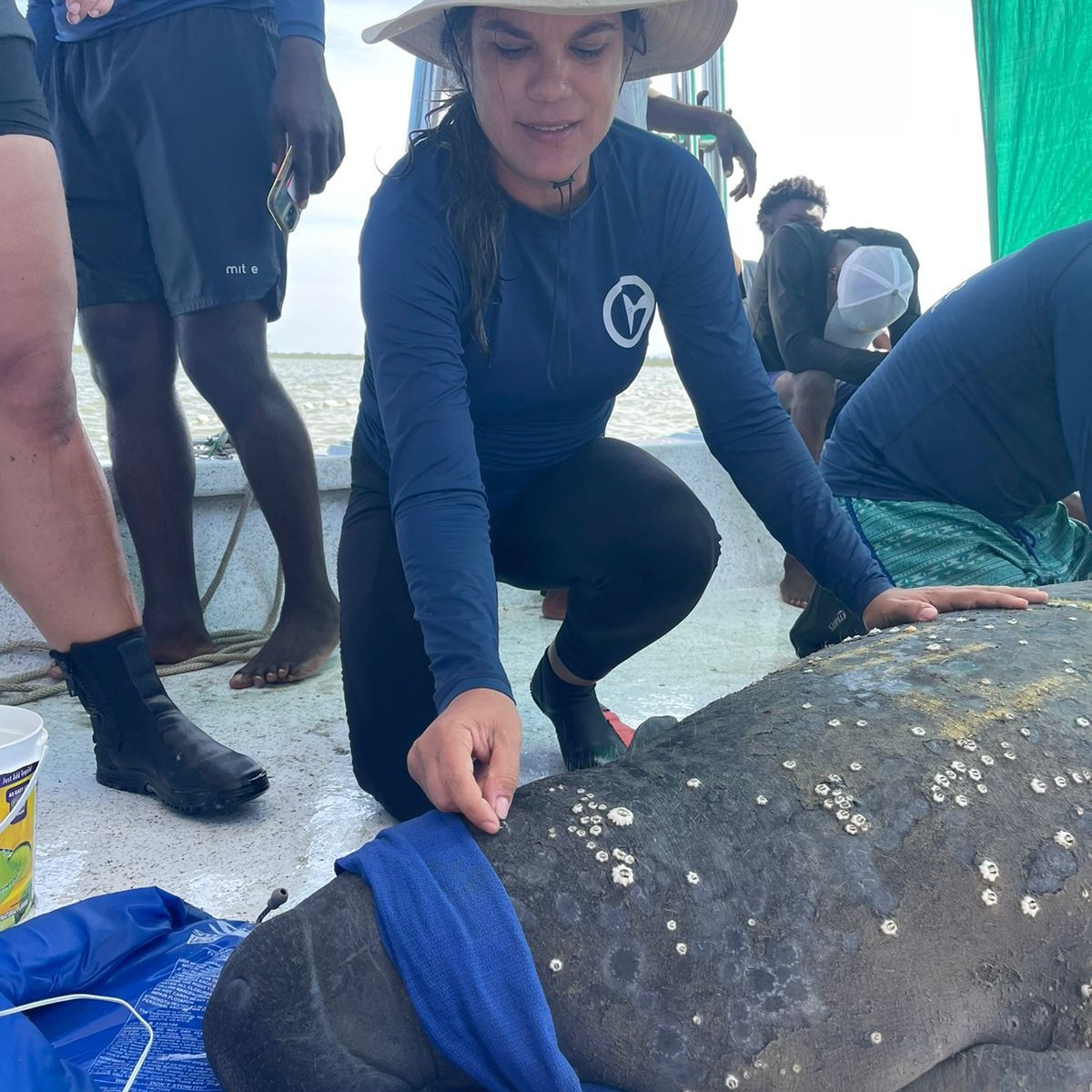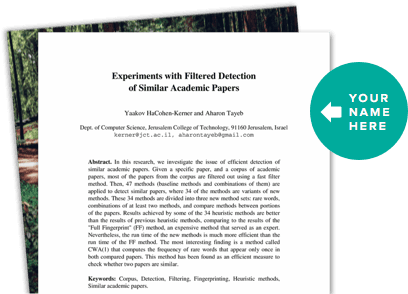About This Project
The Great Caribbean manatee is an endangered subspecies inhabiting the southeastern coast of Cuba, but its distribution and habitat use are poorly understood. This project aims to investigate these aspects to generate data that will help develop conservation strategies. It will also evaluate threats to the species, such as climate change, fishing, and pollution. With this information, protection measures can be designed to ensure its survival and conserve the region's marine ecosystems.
Ask the Scientists
Join The DiscussionWhat is the context of this research?
This project focuses on conserving the Greater Caribbean manatee (Trichechus manatus manatus), an Endangered species due to habitat loss, poaching, and climate change (Morales-Vela, B et al., 2024). In southeastern Cuba, scarce data hinder its protection, despite key ecosystems like seagrass meadows and mangroves (Álvarez-Alemán et al., 2018). Climate change and other threats, such as fishing and pollution, are impacting manatee habitats (Olivera-Gómez et al., 2022; Zenteno Ruiz & Olivera Gómez, 2012). This study aims to fill these knowledge gaps through monitoring and predictive modeling, providing essential data for conservation decision-making. By integrating local knowledge and analyzing the impact of human activities, the project will develop effective strategies for manatee and habitat protection in the face of climate change and increasing anthropogenic pressure.
What is the significance of this project?
This project is crucial for the conservation of the Greater Caribbean manatee (Trichechus manatus manatus), an endangered species with limited data in southeastern Cuba. As a key herbivore, the manatee plays a fundamental ecological role in maintaining the health of coastal ecosystems by regulating seagrass biomass and promoting its growth, benefiting numerous marine species (Castelblanco-Martínez et al., 2021). By identifying its distribution, habitat use, and threats, this study will provide essential data for management and conservation strategies. It will assess the impact of climate change and human activities using predictive models, while integrating local knowledge to strengthen community involvement in conservation. The results will contribute to environmental policymaking and protected area management, supporting national and international efforts to preserve marine biodiversity.
What are the goals of the project?
This project will take place between Cabo Cruz and Punta de Maisí in southeastern Cuba during the dry season (November-April) and the rainy season (May-October). Critical habitats of the Greater Caribbean manatee (Trichechus manatus manatus) will be mapped using satellite imagery, digital elevation models, and in situ measurements of temperature, salinity, and water quality. The species’ distribution will be estimated through drone, boat, and land transects, complemented by interviews with local communities. Threats such as maritime traffic, poaching, fishing, and pollution will be assessed through direct observation and surveys. Predictive models using MaxEnt (Elith et al., 2011) and IPCC (Vuuren et al., 2011) data will forecast climate change impacts on manatee distribution.
Budget
The budget covers the essential costs of data collection, analysis, and logistics. Vehicle rental and fuel are esencial and will allow access to the main and highly inaccesible study sites, while lodging and meals will ensure adequate conditions for the team. The necessary equipment is already available, at BIOECO (Centro Oriental de Ecosistemas Costeros) and CMARI (Clearwater Marine Aquarium Research Institute), which reduces operational costs. Binoculars, GPS units, and cameras will record sightings, while GIS and MaxEnt software will analyze distribution. Monitoring will be conducted through drone, marine, and land surveys, complemented by interviews with local communities to gather information on manatee presence and behavior.
Endorsed by
 Project Timeline
Project Timeline
The project will be carried out in 12 months, starting with the planning and preparation of the field work in the first two months. During months 3 to 8, two phases of monitoring of manatee distribution and habitats in southeastern Cuba will be conducted, with a focus on threats and data analysis. Months 9 to 10 will be dedicated to the analysis of results and proposal of conservation strategies. Finally, in months 11 and 12, a final report with findings and recommendations will be delivered.
Mar 31, 2025
Project Launched
Jun 17, 2025
Planning and logistics report: This milestone will include a detailed description of the study area, data collection strategies, required equipment, and the fieldwork schedule.
Sep 16, 2025
First field results report: The first results of manatee distribution and habitat monitoring will be delivered, including preliminary data and observations of threats.
Dec 18, 2025
Interim report on threats and monitoring: A report on the assessment of threats to manatees, along with progress on data collection on their distribution and habitat use.
Feb 19, 2026
Data analysis report and conservation strategies: This milestone will include the results of data analysis and the proposal of conservation strategies based on those findings.
Meet the Team
Affiliates
Affiliates
Team Bio
This project is led by a multidisciplinary team with expertise in marine biology, aquatic mammal conservation, and coastal ecosystem management. Our mission is to generate key data for the Greater Caribbean manatee’s conservation in southeastern Cuba, supporting its protection and sustainable management.
Scientific Advisor:
Dr. C. Anmari Álvarez Alemán
Ph.D. in marine biology with over 15 years of experience in marine mammal conservation at the Clearwater Marine Aquarium.
Leira Delgado Pérez
I am a biologist with a background in zoology, currently pursuing a master's degree in the Graduate Program in Zoology at the Federal University of Amazonas in Manaus, Brazil. My work focuses on ecology, biodiversity, and conservation, with a particular emphasis on marine ecosystems and the development of protected areas. I am passionate about researching the sustainable use of natural resources and promoting responsible nature tourism as a tool for conservation. My goal is to generate knowledge that contributes to biodiversity protection and the implementation of effective management strategies.
Anmari Alvarez Aleman
I lead applied conservation biology research to increase knowledge about the endangered Greater Caribbean manatee, focusing on threat assessments, regional connectivity, and distribution while highlighting the importance of biological corridors across Caribbean countries, where populations are highly unknown.
I am committed to advancing manatee population and ecosystem research, generating data to support conservation across their range. I aim to foster a community of practice involving students, researchers, and stakeholders in the Wider Caribbean to collaborate on conservation and community engagement. I am particularly dedicated to guiding and inspiring young students in developing countries, where opportunities are often inaccessible, to pursue careers in conservation and research.
Lab Notes
Nothing posted yet.
Additional Information
Additional information about the project:
Ecological context: The southeastern region of Cuba is an area rich in marine biodiversity, with key ecosystems such as seagrass beds and coral reefs that are essential for manatee life. However, these ecosystems face growing threats due to human activity and the effects of climate change.
Importance of the manatee: The manatee is a key species in marine ecosystems as it influences the health of seagrass beds, its primary habitat. By protecting the manatee, we are protecting an essential part of the marine ecosystem, contributing to the stability of the entire food chain.
Research methods: Non-invasive methods such as sightings and aerial photography will be used to carry out the study, allowing valuable data to be collected without disturbing the animals. Advanced technologies like GPS and drones will also be used to map key areas and assess the condition of habitats.
Collaborations and partnerships: The project will involve collaboration with Cuban and international institutions specializing in marine conservation, ensuring a multidisciplinary approach and knowledge exchange to enhance the effectiveness of conservation actions.
Project Backers
- 1Backers
- 1%Funded
- $20Total Donations
- $20.00Average Donation



